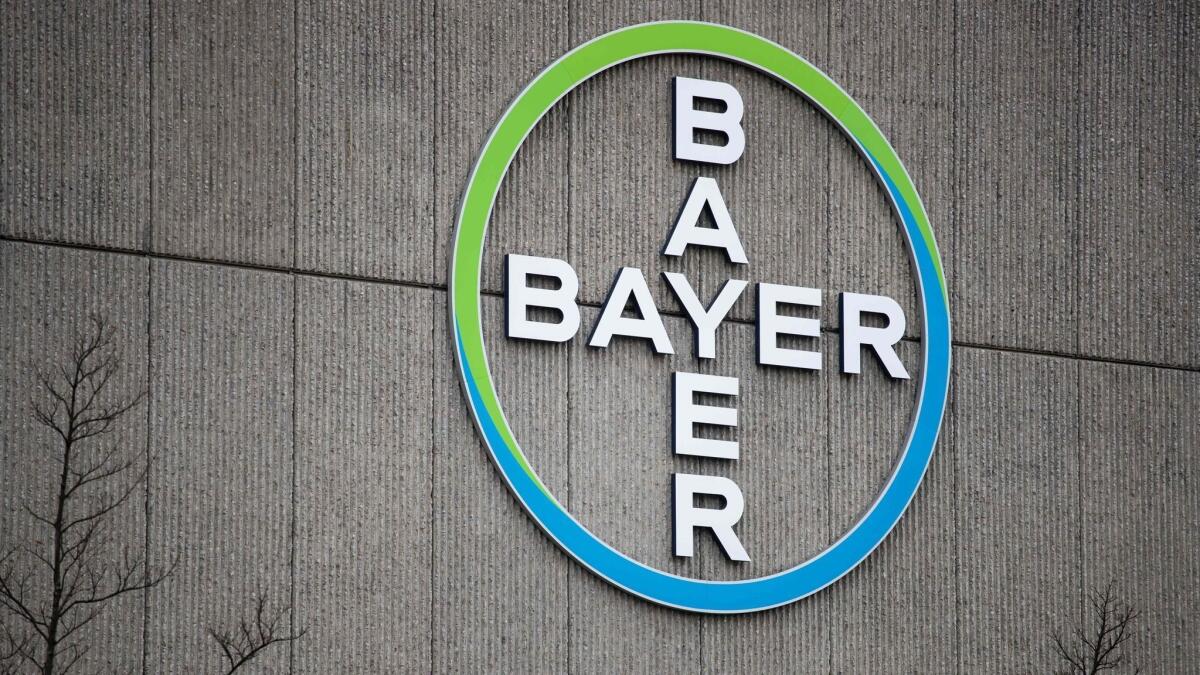Bayer pours $5.6 billion into weedkillers that are not Monsanto’s Roundup

Bayer will pump about $5.6 billion of its research and development budget into alternatives to its weedkiller glyphosate over the next decade as it battles more than 13,000 lawsuits claiming the herbicide causes cancer.
Trying to ease concerns about the controversial compound, the German chemical and drug company said it will seek more public feedback during the coming safety certification process in Europe. Bayer wants to offer farmers new products to fight weeds while standing behind glyphosate-based Roundup, which it acquired via its $63-billion purchase of Monsanto.
“While glyphosate will continue to play an important role in agriculture and in Bayer’s portfolio, the company is committed to offering more choices for growers,” it said in a statement Friday.
Bayer is working to rehabilitate its image as it battles a wave of U.S.-centered litigation that has spread to other countries such as Australia. Last month, the German company suffered a third straight trial loss over claims that exposure to Roundup caused cancer, prompting some analysts to raise their estimates for settling the litigation to as much as $10 billion.
Column: Did a jury ignore science when it hit Monsanto with a $2-billion verdict? »
The $5.6 billion in spending on new herbicides over the next decade does not represent new money. It’s part of Bayer’s existing 2.5 billion-euro annual budget for crop science research and development, spokesman Tino Andresen said. The company expects more growth from seeds and digital farming businesses in coming years, where innovation is expected to yield greater rewards.
The company’s U.S.-traded shares fell 1.5% on Friday. They’ve sunk by nearly half since the Monsanto deal closed a year ago.
Bayer has struggled to cope with the negative sentiment that Monsanto has left in the minds of many people around the world. Last month, it hired law firm Sidley Austin to investigate a surveillance project that the U.S. company launched against European reporters and policymakers.
Bayer and others that sell glyphosate-based products need another review in order to keep selling the chemical in the European Union after 2022. The last round was contentious, ending in a reapproval for just five years — compared with the usual 15 — in 2017.
Re-registration for glyphosate in the EU is due to start this year. While the process typically involves some public review, Bayer promised to invite scientists, journalists and nongovernmental organizations to contribute to the company’s scientific preparations. The European Commission, which published more than 6,000 pages of assessments during the chemical’s last review, has also pledged greater transparency.
Governments of several European countries, including France and Germany, have moved to curb use of the weedkiller. Some companies are also edging away from the product. Deutsche Bahn said it’s looking for ways to keep weeds in check along its 20,000-mile German rail network without Roundup. Options include using hot water, electrical shocks or UV-C light, the company said in emailed comments.
A U.S. judge overseeing federal lawsuits has appointed high-profile mediator Ken Feinberg to lead settlement talks over the herbicide litigation. The next case is set to go to trial in August in St. Louis, a district that is close to Monsanto’s headquarters but also is considered friendly to plaintiffs.
More to Read
Inside the business of entertainment
The Wide Shot brings you news, analysis and insights on everything from streaming wars to production — and what it all means for the future.
You may occasionally receive promotional content from the Los Angeles Times.









